Some pomegranate health claims are accurate. Here’s the skinny on what the real health benefits of pomegranate are vs. the ones marketers overstate.
The makers of pomegranate juice have been under attack for falsely advertising the health benefits of their products for years. But, surely, some pomegranate health claims are accurate. Here’s the skinny on what the real health benefits of pomegranate are vs. the ones marketers overstate.
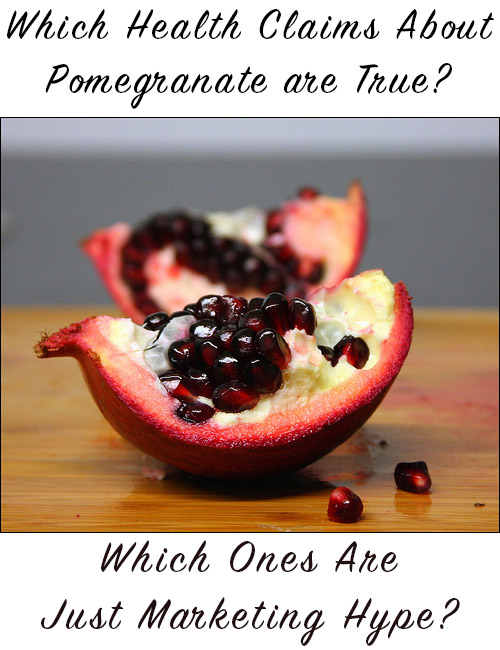
POM Wonderful and other makers of pomegranate juice have been under attack for falsely advertising the health benefits of their products for years. According to Forbes, POM Wonderful has been the most aggressive among a horde of brands touting dubious health benefits. Back in 2012, POM was found to have violated the FTC Act that prohibits false or misleading health claims.
The FTC found that POM Wonderful’s advertising was misleading in claiming its products would treat or reduce the risk of diseases ranging from heart disease to prostate cancer to erectile dysfunction. As a result of the ruling, POM was ordered to “cease and desist.” Their legal woes don’t stop there. POM Wonderful has ironically sued other juice makers for false advertising (including a famously comical Supreme Court case against Coca-Cola) and they have alos been charged with buying off researchers.
So, what’s up with the false claims? It turns out that pomegranate juice manufacturer’s false claims have nothing to do with the health benefits of pomegranates, but rather the health benefits (or lack thereof) of most brands of pomegranate juice and other products because they have minimal amounts of pomegranate in them.
For example, POM is 100% juice from concentrate (not pure), and contains very little (less than 2%) of any of natural pomegranate’s healthful vitamins (not to mention a whopping 31 grams of sugar per serving). As it turns out, pomegranates have many healthful properties, just not the many products that are made from pomegranate extract or concentrate.
The truth is pomegranates do contain vitamins that can reduce the risk of diseases ranging from heart disease to prostate cancer to erectile dysfunction. Jill Taufer, Registered Dietitian, Licensed Dietitian/Nutritionist at the University of Florida notes on their website that pomegranates are high in polyphenols, including flavonoids and tannins. These plant chemicals (also called phytochemicals) act as antioxidants, decreasing oxidation in the body and protecting cells from free radical damage. The antioxidants in pomegranates also reduce inflammation and may have anti-aging effects.
You won’t see the 122 phytochemicals found in pomegranate juice listed on the nutrition facts label. What you will see is that an 8 oz serving has 150 calories, is a good source of folate and potassium, and very good source of vitamin K. The juice also provides 5% of your daily value for vitamins E, B6, and pantothenic acid.
In terms of antioxidents, pomegranates are especially rich in Vitamin C, an antioxidant that is required for at least 300 different metabolic functions in the body. Vitamin C is also a protector from free radical damage and a facilitator of good circulation, which is vital for many things including sexual health and pleasure. Eating whole pomegranate seeds has the added benefit of fiber and provides about 40% of the daily requirement for Vitamin C. But, as Taufer notes, commercial pomegranate juice has been pasteurized for safety, which destroys the vitamin C. Pomegranates also contain vitamin B5, the anti-stress vitamin needed for proper adrenal function and may lower both bad cholesterol and blood triglycerides levels.
Prostate Cancer
Researchers at the University of California, Riverside have identified components in pomegranate juice that both inhibit the movement of cancer cells and weaken their attraction to a chemical signal that promotes the metastasis of prostate cancer. This is exciting news, however, keep in mind that researchers applied pomegranate juice directly onto laboratory-cultured prostate cancer cells. There is no evidence to suggest consuming pomegranate juice concentrate inhibits or prevents cancer.
Heart Disease
According to the Mayo Clinic, drinking pure pomegranate juice (not sugar-added juice like POM and other common brands) might lower cholesterol and may block or slow the buildup of cholesterol in the arteries of people who are at higher risk of heart disease. Other experts point to the fact that pomegranates contain high levels of vitamins A and E, which are known to help to reduce the risk of heart disease.
Enhance Libido
For centuries, pomegranates have been used to promote fertility, increase vitality and to lengthen and improve human life. Nutritionally speaking, the pomegranate offers your body an array of nutrients that will not only increase your overall health, but may just boost your libido and sexual vigor as well.
Bottom line, as Laufer notes, is that consuming the fruit or juice in its whole unprocessed state is always best. She quotes a 2009 article published in Nutrition Reviews that states the health benefit of pomegranate can be attributed “to the combination of phytochemicals, fiber, and other nutrients in whole food intake…”
How to Enjoy Pomegranate
Late October, early November is the season for pomegranates and many recipes that include pomegranate are suitable for colder weather. If you are interested in ways to add pomegranates to your diet, try these wonderful recipes:
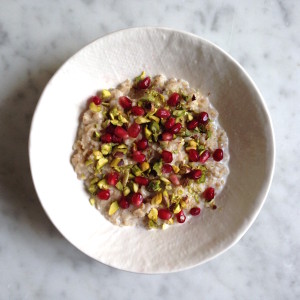
I recently wrote about the ease of pressure cooking, Steel Cut Oats. Posie Harwood at King Arthur Flour suggests topping your steel-cut oatmeal with pomegranate seeds + pistachios + honey + almond milk. “It’s hard to say what’s better about this bowl – the taste or the good looks. Bright red jewels of tart pomegranate seeds brighten up the sweetness of the almond milk and honey. Pistachios add extra crunch.” The King Arthur recipe suggestion: Cook your oatmeal with almond milk instead of regular milk. Stir in 1 tablespoon honey. Top with 2 tablespoons chopped pistachios and 2 tablespoons pomegranate seeds.
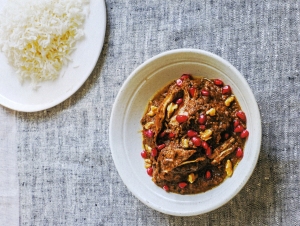
Chicken, Walnut & Pomegranate Stew (Khoresh-e-Fesenjan) This luxuriously simple stew recipe comes from the fabulous cookbook, Persiana: Recipes from the Middle East & Beyond, by Sabrina Ghayour.
Beet and Pomegranate Seed Salad This recipe by Sharon Palmer, RD, from The Plant-Powered Diet, contains pomegranates as well beets that are filled with betalains, the anti-inflammatory compounds responsible for their deep red color.
Wondering how to get at those tricky little pomegranate seeds? Elise Bauer, author of the blog Simply Recipes has a simple, clean method that involves cutting the pomegranate into six sections and prying the seeds out with your fingers. She describes her method along with photos in a simple to follow blog post. Or, check out this youtube video to see a different way to do it.



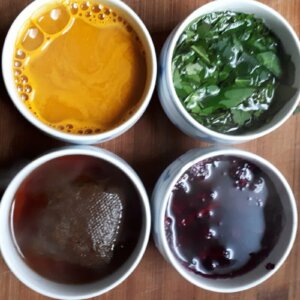










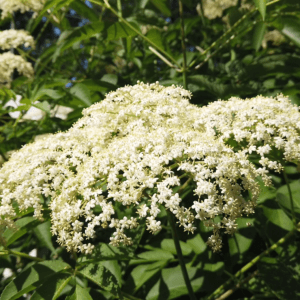










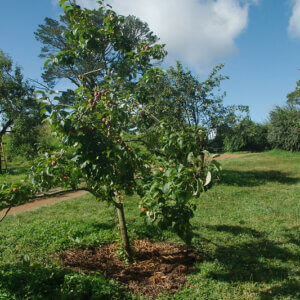


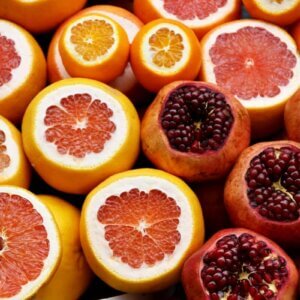


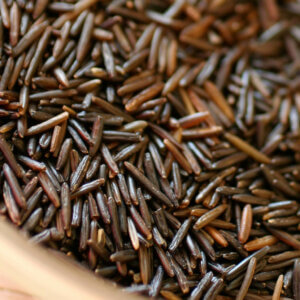


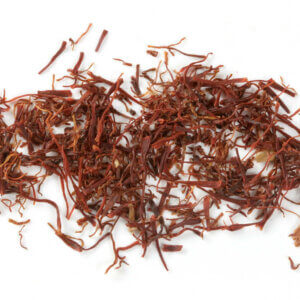


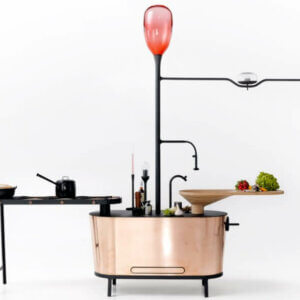



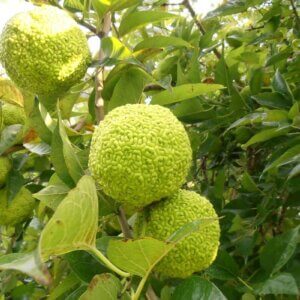
Leave a Reply